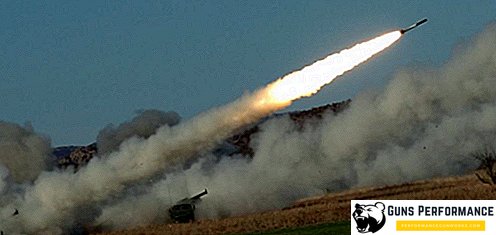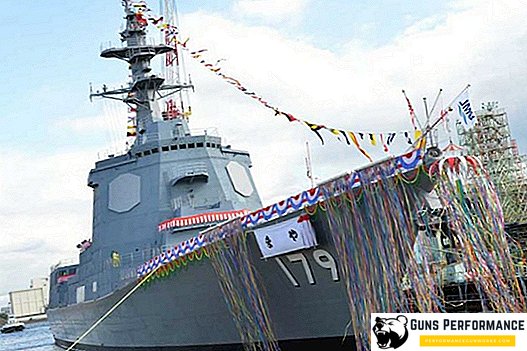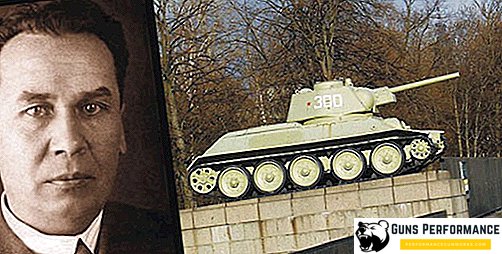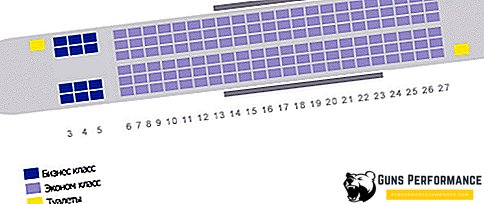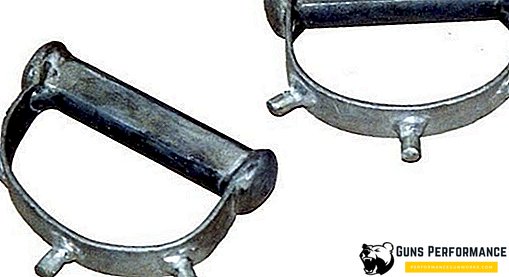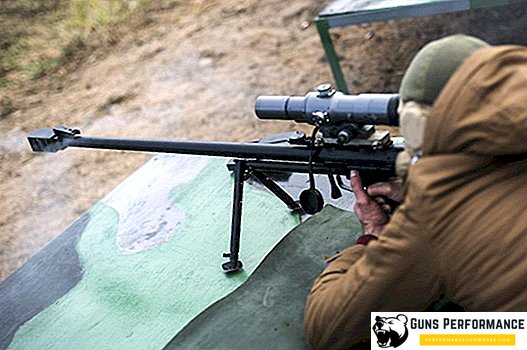The president of Bulgaria is the head of state and supreme commander of the country's armed forces. Its main task is to represent the republic in the international arena and to personify the unity of the Bulgarian people. All the powers of the head of the republic are recorded in the country's constitution. The head of state is elected for a term of up to 5 years. As such, the post of president appeared in 1992. Since 1990, the head of the country was the chairman, who in essence, served as head of state. From 2018, Rumen Radev occupies the post of Bulgarian president, who until 2018 was the commander of the country's air forces.
The history of Bulgaria before the capture of the Turks
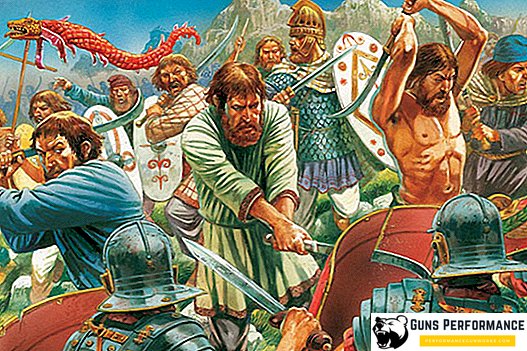
The history of Bulgaria begins approximately in the VIII-VI centuries BC. Then these lands were occupied by the Thracian tribes, who were well known by the ancient Greeks. In the VII century BC, the Greeks founded several of their colonies on the Black Sea coast, and the Thracians quickly realized that Greek civilization could help them establish their own state. In the V century BC, the Thracians were able to form their kingdom, called Odris. The most famous king of the Thracians was Sitalk. He was able to strengthen the young state:
- When he was conquered mountain tribes of the Thracians, who were proud of their independence and did not want to be part of the Audris state;
- The king established taxes, and they were both natural and monetary;
- Released his coins, which were valued on a par with Greek.
In addition, King Sitalk tried to impose a tribute to the coastal Hellenic cities. The new state began to rapidly expand its territory, which led to the Athenian-Thracian wars with Greece. Because of this, Thrace weakened, and in 336 its army was defeated by Alexander the Great. Despite this, the Odrysian kings maintained autonomy by paying tribute. The independence of Thrace came to an end in the 1st century BC, when Ancient Rome conquered it.
The main goal and task of the invaders was the cultivation of their new province, with which they did an excellent job. After the destruction of the Roman Empire by the barbarians, the province of Thrace became part of the Eastern Roman Empire. In the 7th century AD, Slavic tribes appeared on the territory of present-day Bulgaria, which assimilated the local population. Part of the Thracians became part of the Union of Seven Tribes of Slavs. In 680, nomadic Bulgar tribes came here, who were able to completely defeat the Byzantine army. The winners settled in the northeastern lands of Bulgaria. Gradually, the Slavs and the Bulgars began to merge into one people, forming the Bulgarian nation. This process was completed in about the 10th century.
The first Bulgarian kingdom was founded immediately after the arrival of the Bulgars in 680. Its founder is Khan Asparuh. This state existed until 1018, and achieved great success in its development:
- Successfully fought and competed with Byzantium, which often paid off half-wild nomads;
- Carried out military campaigns on the Balkan Peninsula;
- In 865, the country adopted Christianity. This was made possible thanks to the efforts of Prince Boris;
- In the 9th century, Slavic writing appeared in the kingdom.
The First Bulgarian Kingdom reached its dawn in the era of Prince Simeon (reign from 893 to 927). He made his state the most powerful in all of Eastern Europe. The capital Great Preslav was compared in its luxury and wealth with Constantinople. The death of Prince Simeon marked the beginning of the strife and the spread of heretical movements, which eventually led to the disintegration of the state into two parts. In 1018, the fragmented Bulgarian lands were conquered by the Byzantine army.
In 1185-1187, the Second Bulgarian Kingdom emerged. It was formed as a result of the rebellion of Peter the Great and Assen. They managed to rally the Bulgarians and smash the Byzantine army. After the seizure of power, the Bolyar brothers became co-rulers of the Second Bulgarian Kingdom. Their successor Kaloyan was able to territorially restore Bulgaria within the borders that were until 1018. In 1205, a huge Bulgarian army defeated the army of the Latin Empire, which arose after the seizure of Constantinople by the crusaders.
During the reign of Ivan II Assen, the Bulgarian kingdom reached the peak of its power. The king himself proudly called himself the sovereign of the Bulgarians, Vlasov and Romans. In 1241, Ivan II managed to defeat the Mongol army of Khan Batu, who was returning to his native steppes after a victorious march through Europe. After the death of the great king, the state disintegrated into small principalities, aided by several reasons:
- Another Mongol invasion, which occurred in 1242. After him, the Bulgarians began to pay tribute to the Mongols;
- There was no strong ruler capable of leading the country;
- After the defeat of the Bulgarian army by the Mongols, the nobles ran away on their estates, hoping that they would not be touched there;
- After the invaders left, internecine wars began, as every wealthy landowner considered himself worthy to take the place of the supreme ruler.
In this form, Bulgaria existed until the XIV century.
The conquest of Bulgaria by the Ottoman Empire

At the end of the XIV century, the whole territory of modern Bulgaria was conquered by the Ottoman Empire. Small fragmented principalities could not resist the powerful Turkish army. Having made the country part of the Rumelian province, the Turks introduced a military-lenin system. As for the reforms that were carried out by the conquerors, first of all they consisted in the forcible imposition of Islam. Locals periodically raised uprisings, which were suppressed with typical oriental cruelty.
By the end of the 18th century and the beginning of the 19th century, the situation in Bulgaria began to gradually stabilize:
- The revival of the country's cultural heritage has begun;
- In 1835, the first secular-type educational institution was opened in the country;
- The national liberation movement in the country also gained momentum.
Russia's successes in the war against the Ottoman Empire provoked the Bulgarians to the next uprisings. In 1869, the Bulgarian Revolutionary Committee appeared in the country, which prepared the uprising of 1875 and 1876. These two uprisings were suppressed by the Turkish authorities with incredible cruelty.
The mockery of the fraternal Slavic people served as a pretext for Russia to start the Russian-Turkish war of 1877-1878. In this war, Russia won and forced the Ottomans to sign an agreement according to which Bulgaria became an autonomous principality within the Ottoman Empire.
Independent Bulgaria until the end of World War II

In 1908, Bulgaria declared itself completely independent of Turkey. This was the reason for the start of the First Balkan War, which occurred in 1912-1913. The following countries have united in this military conflict against Turkey:
- Bulgaria;
- Greece;
- Romania;
- Montenegro;
- Serbia
The result of this war was the victory of the Allies and the reduction of the possessions of Turkey in the Balkans. But then there were serious differences between the allies, which led to another war. Defeated by the former allies, Bulgaria was attacked by Turkey, whose troops were ordered to immediately join the battle. As a result, the country lost vast territories, the economy was destroyed, and the pressure on the Balkan Peninsula became critical.
In 1915, Bulgaria entered the First World War on the side of Germany. Despite the fact that the beginning of the war was successful, the population of the country did not support it. At the end of 1917, the situation in Bulgaria was explosive, as, by royal decree, food was transported by train to Germany, which led to famine at the front and in the rear. As of 1918, 98% of men between the ages of 19 and 50 were recruited into the Bulgarian army. After the country's army was defeated in September 1918, the soldiers left the front and revolted. His result was the flight of Ferdinant I and the coronation of his son Boris.
The results of the First World War were disappointing for Bulgaria:
- Part of the territory was transferred to Serbs, Croats, Slovenes and Rouge;
- The payment of huge reparations;
- Western Thrace was transferred to Greece, as a result of which Bulgaria lost access to the sea;
- Huge losses among the male population;
- Economic crisis;
- Political crisis
Tsar Boris III repeatedly tried to involve various political parties in governing the country, but they could not find a common language with each other. In 1920, the leader of the Bulgarian Agricultural People’s Union Stambolian, who had enormous prestige among the peasant class, became prime minister. The new prime minister quickly showed the king that he hates the very idea of the monarchical system. Attempted to intervene, Boris III received a sharp response from Stamboliysky that the Bulgarian tsar did not rule the state.
In 1923, a coup d'état occurred in the country, during which the government was overthrown and the prime minister was shot. Tsankov, one of the leaders of the uprising, was appointed in his place. In 1934, the place of prime minister was taken by General Klimon Georgiev, who enjoyed the support of the army. In 1935 he was dismissed from his post by Tsar Boris II, who established the pro-fascist dictatorship. In 1941, the country joined the Covenant of the Three Powers and supported Germany. This led to the following events:
- In 1940, Germany forced Romania to return Dobrudja to Bulgaria;
- In 1941, the country's troops participated in the German occupation of Greece and Yugoslavia;
- In December 1941, Bulgaria officially entered the war with Great Britain and the United States.
Despite the support of Germany, Tsar Boris III did not declare war on the USSR, being on the nature of a pacifist. German troops were present in the country only to protect the railway, which led to occupied Greece. In 1943, Tsar Boris III died a few days after a personal meeting with Hitler. According to the official version - it was a heart attack. Heir to the Bulgarian throne became Simeon II.
In 1944, the Soviet Union, seeing its undoubted victory in the war, declared war on Bulgaria. After that, anti-fascist forces were activated in the country, which were able to seize power in the state. Immediately after this, Bulgaria declared war on Germany and signed a peace treaty with the USSR. In 1947, a peace treaty was signed, according to which the country's territory remained within the borders of 1941.
People's Republic of Bulgaria

In 1946, Bulgaria became a people's republic. The communists representing the Bulgarian Workers' Party came to power at the request of the USSR. The Soviet Union could not immediately ban the activities of other parties, so he showed the local communists how to quickly get rid of opponents. By 1947, many leaders of the opposing parties were executed, arrested and exiled, so in the future all the parties worked under the control of the Bulgarian Communist Party.
In 1947, a new Constitution was adopted in the country, in which a multiparty system was enshrined. As for the policy of the new republic, it was completely focused on the Soviet Union. By analogy with the Stalinist regime, in the country there were constant "cleansing" of unwanted. In 1949, repressions even affected members of the Bulgarian Communist Party. After the death of Stalin in the USSR, Bulgaria also took a course towards easing the regime, while Stalin’s supporters lost their absolute power.
In 1971, a new Constitution was adopted in the country. It stated that from that moment on, all the authority in Bulgaria should be subject to the decisions of the State Council. In the late 1970s, a campaign began against ethnic Turks who lived in Bulgaria:
- Shut down Turkish newspapers;
- Broadcast television and radio companies, which were conducted in Turkish;
- The Turks were forced to change their ethnic surnames to Bulgarian.
This campaign affected about 800,000 Turks who lived in Bulgaria. In 1986, the country's leader Zhivkov tried to carry out some reforms in order to defuse the political situation in the country.
Bulgaria after 1990, reform and political change

In 1989, Zhivkov was removed from his post as a result of a bloodless coup. The new leader of the Bulgarian Communist Party, Peter Mladenov, was proposed as the head of state. The opposition immediately stepped up and began to insist on holding free elections to the interim parliament. The government was forced to agree, and on June 10 and 17, 1990, elections were held in Bulgaria for the Grand National Assembly. This body served as parliament.
On August 1, 1990, indirect presidential elections took place in the country, which resulted in the election of the leader of the Union of Democratic Forces, Zhelyu Zhelev. In 1990, the president was called the chairman of the People’s Republic of Bulgaria, although his functions were similar to those of the president. In 1992, direct presidential elections were held, in which Zhelyu Zhelev won. New elections were held in accordance with the new Bulgarian Constitution, which proclaimed parliamentary democracy in Bulgaria.
The formed parliament faced a lot of difficulties:
- None of the existing parties at that time could form a government;
- There was no opportunity to carry out deep economic reforms;
- Various political forces in the state only interfered with each other.
All this led to the fact that in 1994 the parliament was dissolved, and having failed to form a new government. The Union of Democratic Forces (VTS) against the background of general discontent of the Bulgarian population was able to launch a large-scale anti-communist campaign. This led to the fact that in 1996 the country's anti-government protests began. After that, the government was forced to resign.
After the resignation of the government, the VTS leader Petr Stoyanov became the president of Bulgaria. His party won the parliamentary elections in 1997. In 1999, the government announced the completion of the transition period in Bulgaria. During this time, the following changes occurred in the country's economy:
- Privatized;
- Unprofitable enterprises were closed;
- Increased unemployment in the country.
By 2001, unemployment in the country reached 19% of the total working-age population. In the same year, the Simeon II party won the parliamentary elections. This movement was created by supporters of King Simeon II, who returned to his homeland. In this case, the former king was not going to revive the monarchy.
In 2004, Bulgaria was admitted to NATO, and in 2007 - to the European Union. Despite the fact that after the country's accession to the European Union, there have been some improvements in the economic situation, Bulgaria still has a very low standard of living.
Specific differences between the executive in Bulgaria

The highest executive body in Bulgaria is the Council of Ministers. It consists of the following members:
- Minister Chairperson;
- Several vice chairs;
- Ministers.
The minister-chairman coordinates the actions of the government and is personally responsible for this. In addition, his task includes the appointment and dismissal of deputy ministers.
The candidate for ministers-chairmen, who is recommended to the president of Bulgaria by the parliamentary group that obtained the majority of votes, is instructed by the head of state to draft a government. After this, the National Assembly must approve the minister-chairman in office. If there is no agreement on the formation of a government, the president may appoint a service government. At the same time, the National Assembly is dissolved, and the head of the republic appoints new elections.
The Council of Ministers shall fulfill its functions in accordance with the Constitution of the country:
- Implement domestic and foreign policy of the state;
- To ensure national security;
- Ensure internal order;
- To organize the expedient use of state property;
- Manage the allocation of the state budget.
In addition, the Council of Ministers may approve international treaties, if provided for by law.
The status and duties of the president of Bulgaria, the list of heads of state since 1992

The main right of the President of Bulgaria, which he can use, is the ability to impose a veto on the decisions of the National Assembly. При этом члены собрания всё равно могут настоять на своём варианте, так как глава государства может отклонять решение только 3 раза. В четвёртый раз решение будет принято, несмотря на мнение и распоряжения президента.
Ещё одной ключевой особенностью института президентства в Болгарии является то, что Национальная служба разведки подчиняется именно ему.
Президенты в Болгарии появились только в 1992 году. Их список выглядит следующим образом:
- 1992-1997 год - Желю Желев. Фактически правил с 1990 года, только изначально был председателем. В 1992 году был переизбран в качестве президента. В этом же году прошла его инаугурация;
- 1997-2002 год - Петр Стоянов. При нём Болгария предоставила свои территории для военных сил НАТО, когда они напали на Югославию;
- 2002-2012 год - Георгий Пырванов. Он смог пробыть на этом посту два срока подряд;
- 2012-2017 год - Росен Плевнелиев. Как бизнесмен постоянно оказывал поддержку предпринимателям, старался уменьшить налоги. Не стал баллотироваться на второй срок.
В настоящее время президентом Болгарии является Румен Радиев, который был избран в 2018 году.
Резиденция и приёмная президента Болгарии расположена в самом центре Софии, на бульваре Царя-освободителя. Это здание было построено в 1956 году для министерства электрификации. Потом там размещался Государственный Совет, а после этого здание отдали президенту. У главного входа в резиденцию круглосуточно дежурит почётный караул.



